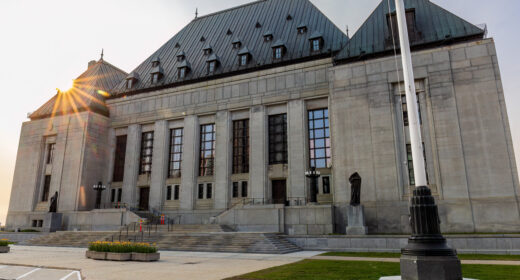One common challenge that Canadian trademark practitioners face is properly characterizing their clients’ goods and services in “ordinary commercial terms”, as required by the Trade-marks Act. Many intellectual property practitioners can attest that clients often develop entirely new businesses around innovative products, and therefore there is no definitive or previously approved way of describing goods or services offered in connection with a groundbreaking business model.
This is exacerbated in situations where the services in question are advertised, offered and sold online. In what jurisdiction does an online sale (and the associated trademark use) occur when the purchase is made on a laptop in Canada and the product is manufactured in and shipped from the UK? Given that the purchaser and shipping address emanate from Canada, it is likely that the trademark was used in Canada, provided it was displayed on the goods when received by the purchaser in Canada.
With respect to services, Canadian law has traditionally been quite clear that a trademark has been used in connection with services when it has been advertised and is available to Canadian consumers. However, what about when the services are purchased online from Canada but consumed abroad? A relatively recent decision of the Federal Court looked at this exact fact pattern and potentially provided some important guidance regarding how Canadian trademark applications should be crafted in a globalized and Internet-driven economy.
In Supershuttle International, Inc. and Fetherstonhaugh & Co., the Federal Court examined an appeal of a cancellation proceeding under s. 45 of the Trade-marks Act against the trademark “SUPERSHUTTLE”. At the tribunal level, the Opposition Board determined that since the associated “airport passenger ground transportation services” were not offered within Canada in the relevant three-year window under consideration, the trademark should be expunged for non-use.
At appeal, the Court determined that deference should be given to the Opposition Board’s decision and agreed that the trademark had not been used in Canada pursuant to s.4 of the Trade-marks Act and the applicable jurisprudence.
In coming to this determination, the Court distinguished the case at issue from its previous decision rendered in Société Nationale des Chemins de Fer Français Sncf v. Venic Simplon-Orient-Express Inc., where it found that “travel services, namely railway passenger services” encompassed arguably broader but related services including “train ticketing and train reservations”.
In making this distinction, the Court noted that the trademark registrations in question did not explicitly cover any “registration services”, but rather were strictly limited to “ground transportation services”. Therefore, the trademark was not used in Canada as registered since ground transportation services were not offered during the relevant period.
This suggests that had the owner characterized its services more broadly to contemplate “registration and booking services” or “provision of tickets”, then the trademark registration may have been saved.
In conclusion, this case illustrates how important it is for IP professionals when crafting a new trademark application to consult with the trademark owner to clarify exactly how the business works and what aspect of its business is being performed in Canada. This is particularly so in cases where the client is offering potentially novel goods and services over the Internet; and therefore, goods and services that could be readily offered to consumers around the world.


